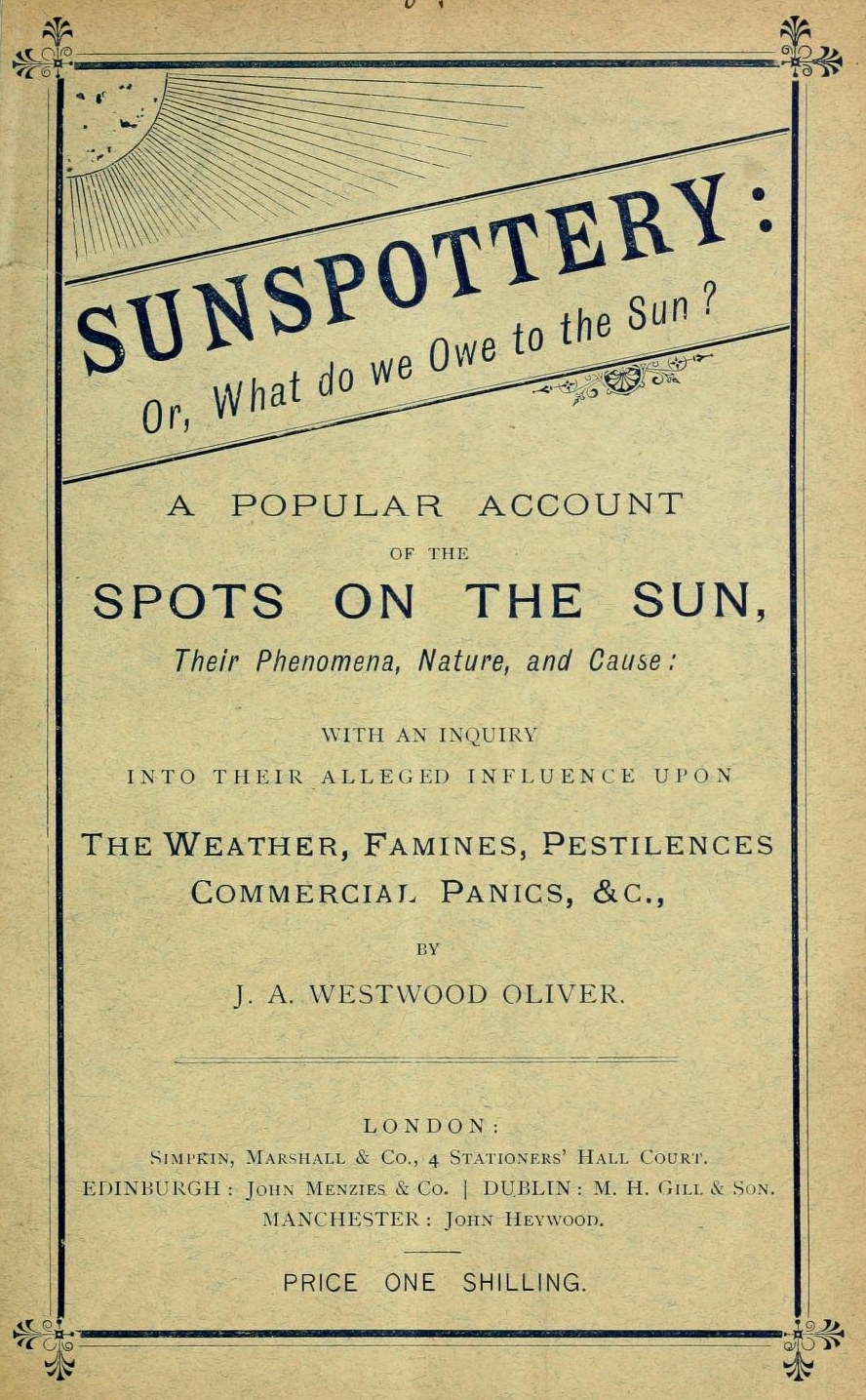Sunspottery Cover on:
[Wikipedia]
[Google]
[Amazon]
 Sunspottery was a pejorative term assigned to a late 19th century trend to ascribe
Sunspottery was a pejorative term assigned to a late 19th century trend to ascribe
File:Sunspottery_Punch.jpg, Commentary in ''Punch'' 1883
 Sunspottery was a pejorative term assigned to a late 19th century trend to ascribe
Sunspottery was a pejorative term assigned to a late 19th century trend to ascribe sunspot
Sunspots are phenomena on the Sun's photosphere that appear as temporary spots that are darker than the surrounding areas. They are regions of reduced surface temperature caused by concentrations of magnetic flux that inhibit convection. Sun ...
s and their cycles as causes for various cyclic phenomena, including disease outbreaks and economic crises.
William Stanley Jevons
William Stanley Jevons (; 1 September 183513 August 1882) was an English economist and logician.
Irving Fisher described Jevons's book ''A General Mathematical Theory of Political Economy'' (1862) as the start of the mathematical method in ec ...
read a paper ''On the influence of the sun-spot period upon the price of corn'' at a meeting of the ''British Association for the Advancement of Science
The British Science Association (BSA) is a charity and learned society founded in 1831 to aid in the promotion and development of science. Until 2009 it was known as the British Association for the Advancement of Science (BA). The current Chie ...
'' in 1875. This was followed by a great deal of media interest and a period when it became fanciful to blame the sun for all kinds of events, with the term being used pejoratively in the newspapers. Jevons later wrote to the '' Times'' in April 1879 stating that despite the abuse of his idea "the activity of commerce in England ultimately depends upon the solar activity". A pamphlet dealing with the facts of solar cycles, use, and misuse published in 1883 was reviewed by '' The Globe,'' which noted that "''Sun-spottery is not what it is represented to be, but is, for the most part, humbug.''"
Sunspot cycles affecting weather and various other phenomena have however continued to be of interest and are still a serious subject of study.
See also
* Brückner-Egeson-Lockyer cycle * Sunspots (economics)References
{{Reflist Periodic phenomena 19th-century fads and trends